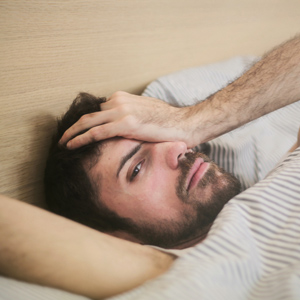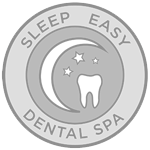
Sleep isn’t just about rest—it’s a vital function that recharges your mind, restores your body, and helps prevent serious health complications. Yet, many individuals struggle with what’s known as the sleep effect — a condition where poor or disordered sleep silently affects day-to-day performance, energy, and long-term wellness.
In our previous blog, we learned about the science behind the sleep effect and how it affects our physical and mental well-being. In this blog, we will outline a few steps that help prevent the risks associated with the sleep effect.
5 Essential Tips to Follow for Better Sleep Cycle
Whether it’s fatigue, mood swings, or difficulty concentrating, the consequences of untreated sleep disturbances go far beyond a bad night’s rest. Thankfully, there are preventive steps you can take to reduce the risks and enjoy a healthier sleep routine. Let’s explore 5 expert-backed tips that can help you reduce the health risks associated with sleep-related conditions.
-
Maintain a Regular Sleep Routine
Your body operates on a 24-hour internal clock, and maintaining consistent sleep patterns helps it stay in sync. Sleeping at irregular hours—even on weekends—can disrupt your circadian rhythm and contribute to ongoing fatigue and mental fog.
Pro Tip: Try setting a consistent bedtime and wake-up time to allow your body to naturally prepare for sleep and wakefulness. This is one of the most effective lifestyle habits to stabilize your sleep cycle. If you’re unsure whether your patterns are normal, professionals in sleep medicine in Hudson can guide you with tailored sleep hygiene practices.
-
Reduce Blue Light Exposure at Night
Late-night scrolling or streaming might feel relaxing, but the blue light from screens suppresses melatonin, the hormone that tells your brain it’s time to sleep. Over time, this can lead to delayed sleep onset and poor quality of rest.
Pro Tip: Try to turn off devices at least one hour before bedtime. Instead, opt for calming routines like journaling, reading, or meditative breathing. Avoiding screen time before bed may seem small, but it plays a major role in protecting against long-term sleep issues.
-
Create a Restful Sleep Environment
Your sleep space should support relaxation. Light, noise, and temperature fluctuations can all disrupt your sleep, leaving you tired even after a full night in bed.
Pro Tip: Keep your sleeping space cozy, dark, and quiet. To maximize your sleeping environment, try blackout curtains, white noise machines, and comfy bedding. If symptoms like snoring, tossing, or gasping wake you up frequently, consider an evaluation with certified sleep apnea doctors in Niles. They can help diagnose and treat conditions like obstructive sleep apnea that may be affecting your rest.
-
Mind Your Diet and Movement
What you eat—and when—impacts how you sleep. Late meals, sugary snacks, caffeine, and alcohol too close to bedtime can cause restless nights. Similarly, a lack of physical activity can lower the quality of your sleep.
Pro Tip: Try to avoid caffeine after 2 PM and keep dinner light and early. Incorporate daily physical activity like walking or stretching to promote deeper, more restorative sleep. Healthy habits throughout the day set you up for better nights, especially when it comes to protecting against the effects of disrupted sleep.
-
Don’t Delay Medical Support
If you constantly feel tired, groggy, or mentally drained despite getting enough hours of rest, it’s time to look deeper. Early detection of sleep disorders can prevent more serious issues down the line, including heart problems and memory loss.
Pro Tip: For a thorough sleep evaluation, visit a reputable sleep center in Liberty Township. From overnight studies to custom treatments, they can help you get to the root of your sleep challenges before they escalate. Early intervention is key to managing any condition linked to poor sleep, and expert care can make a significant difference.
Conclusion
Sleep problems may not always scream for attention, but their effects are loud and long-lasting. By taking proactive steps to improve your sleep hygiene, environment, and routines, you can greatly reduce the health risks associated with the sleep effect in Hubbard.
Your sleep is worth protecting—so take charge of your nights to improve your days. Whether you're in Hudson, Liberty Township, or Niles, support is just around the corner. Call us now at (330) 759-4550!









